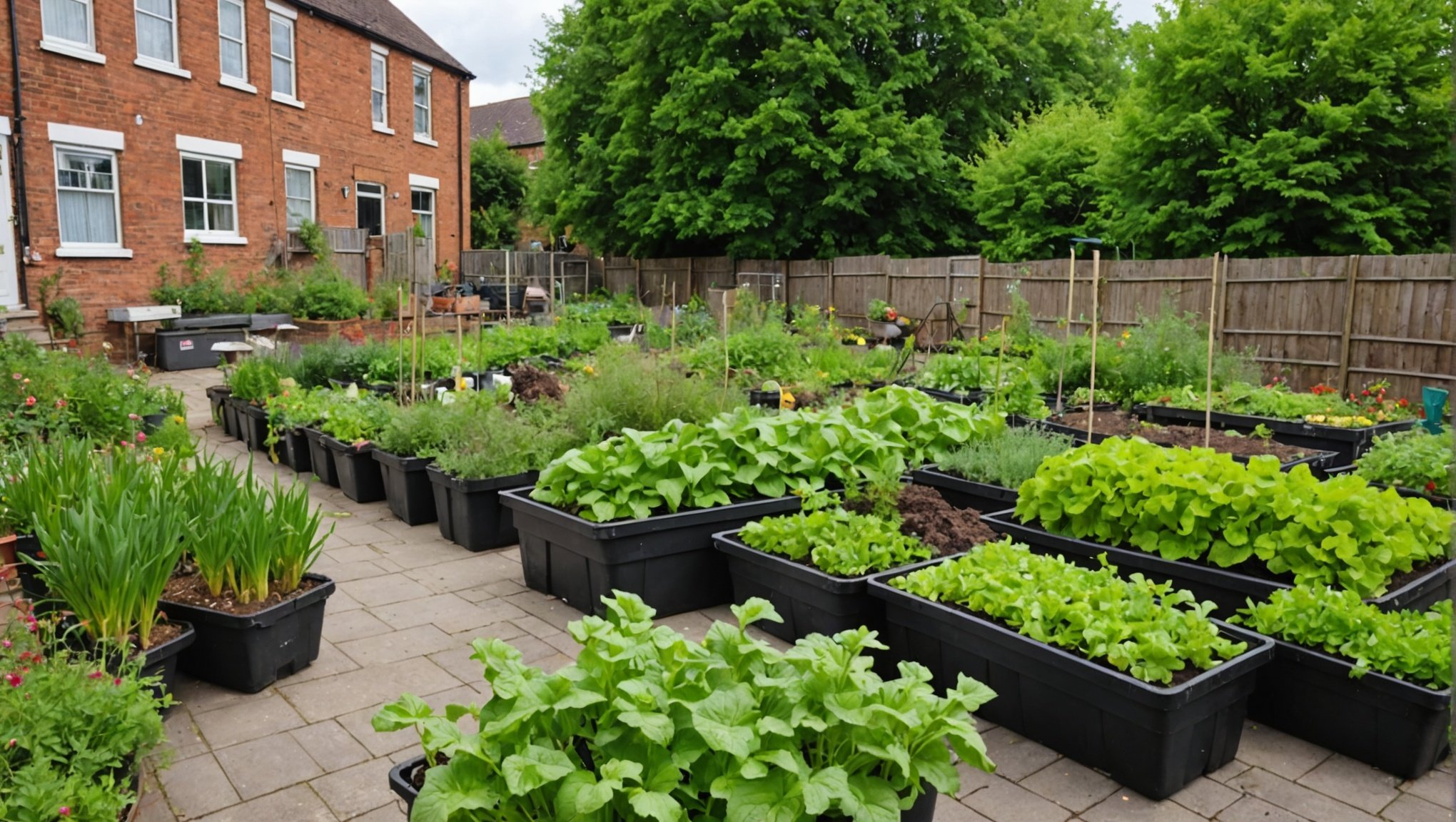Overview of Local Agricultural Regulations
Understanding local agricultural regulations is crucial for anyone interested in urban gardening. These laws can vary widely, impacting what you can grow, where, and how. UK Agricultural Laws provide a framework that urban gardeners must adhere to, ensuring that practices are environmentally sound and legally compliant.
When considering urban gardening, acknowledging key regional differences is essential. Different regions in the UK have distinct laws governing urban gardening, which might include restrictions on certain crops or requirements for pesticide usage. For instance, in some areas, you may be required to obtain specific permits, especially if you intend to sell produce commercially.
Also to see : Mastering the UK”s Environmental Assessment for Your Sustainable Hotel Project: A Step-by-Step Guide
The compliance requirements are typically defined within local councils’ policies and can encompass several aspects of gardening and farming within urban settings. These include land use permissions, waste management practices, and water usage restrictions. Urban gardeners must stay informed about these regulations to avoid fines and ensure harmonious coexistence with the community.
Remember, staying updated with these regulations not only helps in avoiding legal issues but also promotes sustainable practices. Regularly consulting with local authorities or community groups can provide clarity and guidance on navigating these laws effectively. Staying proactive in understanding these regulations can significantly aid in the success and legality of your urban gardening endeavors.
Additional reading : Your Ultimate Guide to Establishing a UK Coworking Space Compliant with Fire Safety Standards
Navigating Licensing Requirements
Understanding the licensing requirements for gardening businesses in the UK is crucial for operating legally and successfully.
Types of Licenses Required
To start a gardening business, you will typically need several licenses and registrations. Essential ones include a general gardening license if you’re using chemicals or plant protection products and a waste carrier’s license if you’re disposing of waste like soil or plants. Depending on the services offered, additional local business approvals might also be necessary to comply with safety regulations.
Application Process for Licensing
The application process for obtaining these licenses often involves several steps. Initially, register your business through your local council to demonstrate compliance with local laws. You may need to complete specific training or submit documentation that proves your credentials and safety standards are met. Make sure to fill out all required forms accurately to avoid delays.
Common Challenges and Solutions
Common challenges in the licensing process include understanding the specific licenses relevant to your business and navigating bureaucratic requirements. The best way to overcome these hurdles is through thorough research and consultation with legal experts. Additionally, many industry associations can provide resources to help streamline the process. Preparation and persistence are key to successfully navigating licensing demands.
Zoning Laws and Land Use Policies
Understanding zoning laws is crucial for successful urban gardening. These regulations determine what activities can occur on specific plots of land, impacting the potential for growing a garden in urban areas. Adhering to zoning laws ensures compliance with local regulations and promotes harmonious use of urban land.
To determine the applicable zoning regulations in your area, start by consulting your city’s planning or zoning office. They can provide detailed maps and documentation outlining specific urban land use permissions. Familiarising yourself with these policies will help you avoid any legal complications that could arise from gardening activities.
Several cities have witnessed successful urban gardening projects that adeptly adapted to zoning restrictions. For instance, in New York City, an innovative rooftop garden initiative aligned with commercial and residential zoning laws, allowing for the cultivation of fresh produce while adhering to urban land use rules. San Francisco’s community gardens also exemplify how creative adaptations to zoning laws can foster sustainable urban gardening spaces.
By understanding zoning laws and urban land use policies, gardeners can effectively navigate restrictions, enabling thriving urban gardens that contribute to community well-being and ecological diversity. Embracing flexibility and creativity within these frameworks is key for success.
Environmental Considerations
With growing concern for sustainable gardening and compliance with environmental regulations, urban landscapes are transforming.
Good Practices for Urban Sustainability
To embrace sustainable gardening in urban areas, it’s essential to adopt good practices. Consider native plants that require less water, fostering biodiversity. Composting organic waste can reduce landfill contributions while enriching soil naturally. These methods not only support the environment but can be significantly cost-effective over time.
Impact of Regulations on Garden Design
Environmental regulations often dictate how gardens are designed. For instance, some areas may require specific types of permeable surfaces to prevent run-off, influencing the layout and choice of materials. Such regulations ensure that urban gardens contribute positively by reducing the heat island effect and managing stormwater efficiently. Designing within these limits can transform challenges into creative opportunities.
Addressing Environmental Challenges
For urban gardeners, complying with regulations without compromising on sustainability is key. Methods like rainwater harvesting and adopting xeriscape techniques can help maintain green spaces responsibly. Additionally, regulations may dictate pesticide use or prohibit certain plants that could harm local ecosystems. Staying informed and embracing creative solutions ensures urban gardens thrive within these frameworks, enhancing both aesthetic and ecological value.
Practical Tips for Compliance
Navigating the world of urban gardening requires a keen understanding of compliance requirements. To remain informed about regulatory changes, best practices include subscribing to local governmental newsletters and attending urban gardening workshops. These resources operate as valuable conduits for current updates and advice on compliance.
Connecting with support groups, either online or in local communities, also offers substantial benefits. These groups often share experiences and successful strategies, enhancing one’s knowledge and approach to urban gardening. Additionally, seeking assistance from government agencies can provide insights into regional regulations, ensuring that your practices align with legal expectations.
To cultivate a compliance-friendly garden, start by planning meticulously. Conduct thorough research on permissible plant species and avoid those that may violate city ordinances. Strategically position plants to maximise sunlight while adhering to space regulations. Careful planning not only ensures compliance but also optimises garden productivity.
Create a compliance checklist as an ongoing reminder of critical practices, such as water usage and waste disposal regulations. Regularly reviewing and updating this checklist can solidify adherence to compliance strategies, facilitating a lawful and flourishing urban garden. Integrating these practices not only makes urban gardening more straightforward but also nurtures a thriving, environmentally responsible community.
Resources for Urban Gardeners
Urban gardening has become a transformative movement in thriving city environments, offering dynamic gardening resources across the UK. Whether you’re a novice or an experienced gardener, the UK Urban Gardening Community provides abundant opportunities.
Online Platforms and Forums
A plethora of online platforms and forums offer an engaging space for gardeners to share experiences, tips, and support. Notable resources, such as the UK Urban Gardening Community Facebook group and the Allotment & Gardens Forum, promote active discussion and exchange of ideas among urban gardeners. These communities are invaluable for connecting with like-minded individuals, finding solutions to common challenges, and gaining inspiration.
Local Government and Community Programs
Local governments often support urban gardening through various initiatives. Councils may offer grants, resources, or spaces for community gardening projects. For instance, the Mayor of London’s “Grow Back Greener” initiative provides funds for green spaces, boosting ecological awareness and community involvement. These programs equip urban gardeners with tools and resources to thrive in city environments.
Educational Workshops and Webinars
Educational workshops and webinars are essential for understanding gardening compliance and best practices. Organisations like the Royal Horticultural Society (RHS) frequently host events tailored to enhancing gardening skills. These educational opportunities empower urban gardeners to cultivate flourishing gardens while complying with local regulations, making gardening both a fulfilling and sustainable pursuit.
Case Studies of Successful Urban Gardening Ventures
Across the UK, Urban Gardening Success Stories reveal the ingenuity and persistence of communities transforming urban spaces. These case studies highlight not just the aesthetic and environmental benefits, but also the strategic navigation of regulations and challenges urban gardeners face.
Inspiring Examples
Consider a bustling London neighbourhood that turned abandoned spaces into lush community gardens. The success of such endeavours results from creative planning and partnerships. By collaborating with local councils, urban gardeners secure land use approvals, ensuring the legality of their projects.
Navigating Challenges
These projects often encounter regulatory hurdles. For instance, urban gardening initiatives are required to comply with zoning laws. By engaging with local authorities and demonstrating the ecological advantages, gardeners have negotiated exceptions or amendments to existing policies.
Lessons Learned
The case studies underscore valuable lessons:
- Persistence and cooperation with government bodies.
- Understanding local regulatory landscapes can be just as critical as cultivating the land.
- Successful ventures often have a strategic plan aligned with community needs and legal frameworks.
These insights into UK-based case studies reveal how urban gardeners thrive despite potential setbacks, offering a roadmap for future urban gardening innovations. Through dedication and collaboration, urban gardening continues to flourish, nurturing both communities and ecosystems.











